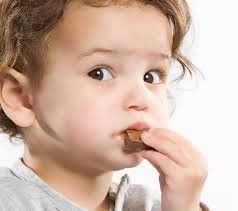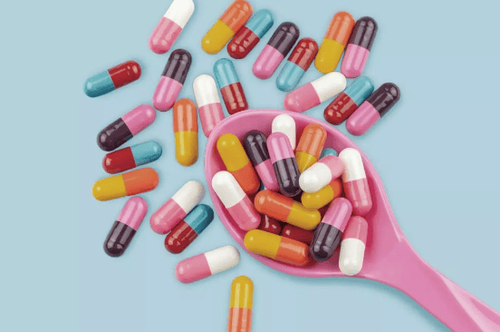This is an automatically translated article.
The article was professionally consulted with resident Doctor Ho Thi Hong Tho - Neonatologist - Department of Pediatrics - Neonatology - Vinmec Phu Quoc International General Hospital.A healthy, balanced diet will provide all the vitamins and nutrients your child needs to grow physically and mentally. However, at this stage, your baby can begin to get used to many different foods. So, does feeding your baby sweets affect your baby's health? And when is the best time to introduce the baby to this type of food?
1. Time can give baby candy
Babies should not eat candy. Because hard or chewy candies pose a choking hazard, and giving your baby other treats like chocolate can contribute to poor eating habits as he gets older.Claudia Gonzalez, a registered dietitian in Miami, said: "Parents introduce their children to sweets, especially sweets and sugary sodas, at a very young age." She also recommends that: "I advise you not to give your child sweets for as long as possible, at least after the 2nd birthday".
Candy is full of empty calories, you yourself want to make sure that your child eats more foods that contain more nutrients. Babies need a healthy diet to promote all the development going on in their bodies and minds.
Because eating habits and tastes are learned early on. What you give your child now affects them for life. Helping children get off to a healthy start sets the stage for lifelong nutritious eating.
Never give your child hard candy like peppercorns, toffees, or peas before age 4. This type of candy can easily cause your baby to choke because it slides down his throat and he can't chew properly. Tiny pieces of chocolate that melt in your child's mouth can also be considered a special treat after age 2.
Parents must make sure that anyone else feeding their baby, such as grandparents, babysitters or caregivers, knows what foods are appropriate for your child.
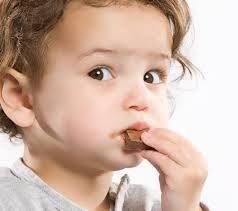
And you need to think about the reasons why you offer sweets to your child. If sweets tend to be a bonus in your home, consider inedible snacks instead. Most young children will be happy if not more if you reward them with a new roll of stickers to replace a candy bar.
2. Can babies eat chocolate?
One mother's story recounted: During the first year of my daughter's life, I had a strict rule not to eat sweets. But the day my little girl turned 1 year old, I said goodbye. That morning, I gave her a small piece of dark chocolate to enjoy.She devoured the chocolate and immediately began reaching out her chubby little hands to learn more. There's chocolate smeared all over her mouth, a grin on her face, and a new love that I know she won't soon forget.
Just after a friend said to me, "Aren't you worried she might have an allergy?" I was confused. Honestly, I never thought about it before. I've never known anyone with a chocolate allergy and don't most babies get to eat some kind of cake on their 1st birthday? I'm certainly not the first to introduce chocolate on this day! But should I be more cautious?
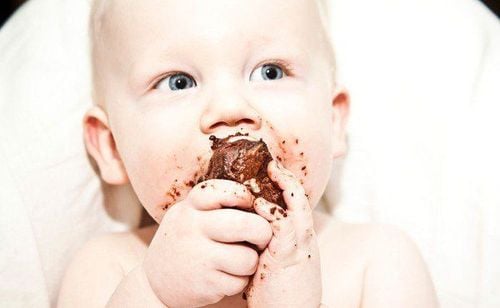
3. Allergy concerns
In fact, the Internet has a lot of different opinions on this matter. At one time, chocolate was listed as a worrisome food for young children. Allergic reactions have been observed and parents have been warned to proceed with caution.But in recent years it has become increasingly clear that many of those suspected reactions could be the result of something in the chocolate like nuts or soy. Both are on the FDA's list of the top eight food allergens. Chocolate itself is rarely blamed for allergic reactions.
However, reading labels is always important, as is talking with your pediatrician about any concerns you may have. And whenever you introduce any new food to your baby, you should always be on the lookout for symptoms of an allergic reaction. These may include a rash, stomach irritation, or itching.
In severe cases, a food allergy can cause a child's tongue or throat to swell. In this case, you should get medical help right away.
4. Other concerns
Allergies aren't a big concern when it comes to chocolate and babies, but is there something else to worry about?Parents should consider the nutritional value of chocolate. Moderation is key for young children who are not yet eating a lot of solid foods. You don't want chocolate (or any other form of candy or sweet) to be a staple of your child's daily diet. Too much sugar can contribute to obesity and diabetes, and eating candy can lead to tooth decay.
Chocolate candy is considered a rare birthday gift? But on a typical day, don't make chocolate a regular part of your child's balanced diet.
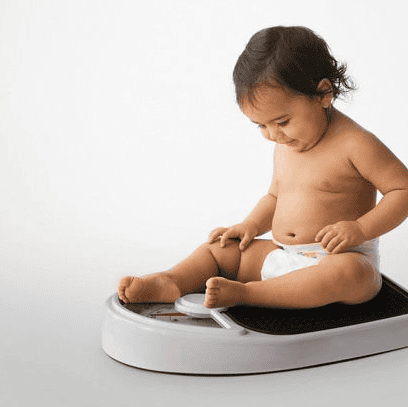
5. When should parents start giving children chocolate?
Parents should take the time to introduce new foods to their babies. That way, if there's a reaction to something new, it's easier to figure out what caused it. Most experts recommend that you don't give your baby sweets or give them candy for the first year of life. If parents want their children to develop a preference for other foods that are healthier than before.But in reality, there are no specific medical guidelines for introducing chocolate to your baby. It is up to parents to decide after starting complementary feeding. But keep in mind that chocolate often contains some of the eight major dairy-like allergens that you may want to avoid for your child.
So, to be absolutely sure, parents should contact their pediatrician if they have specific questions or concerns about the best time to introduce a new food to their baby.
6. Milk Chocolate
The health benefits of dark chocolate are now well known. But even with some heart-healthy benefits, not all chocolate is created equal. Some chocolates are processed and contain more sugar than you know. So when choosing chocolate you should pay attention to the label and only provide chocolate to children in moderation.Dark chocolate tends to have less sugar than milk chocolate, but not all kids like the bitter taste. But what about chocolate milk, a favorite among toddlers and older kids? Is it suitable for babies? The answer is yes or no. Milk should not be introduced to children under 1. Then, assuming your child does not have an allergic reaction to milk, chocolate milk is fine. But keep in mind that chocolate milk contains more sugar than a glass of whole milk. Therefore providing in moderation and in moderation is essential
In case, after getting the consent of your pediatrician to introduce chocolate to your baby, you can do Follow some of the ways below to provide chocolate to your baby in the easiest way.
Here are some delicious and easy chocolate recipes to try. You can even make them with your baby in the kitchen.
Almond cake Chocolate pudding Chocolate cake

Children who do not eat properly are at risk of micro-mineral deficiency causing anorexia, growth retardation, malabsorption,... If they notice the above signs, parents should supplement their children with products. The supplement contains lysine, essential micro-minerals and vitamins such as zinc, chromium, selenium, and B vitamins to help fully meet the nutritional needs of children. At the same time, these essential vitamins also support digestion, enhance nutrient absorption, help improve anorexia, and help children eat well.
Parents can learn more:
Signs of zinc deficiency in children
Micronutrient deficiency and failure to gain weight in children
Please regularly visit Vinmec.com website and update useful information to take care of your child. Take care of the baby and the whole family.
Please dial HOTLINE for more information or register for an appointment HERE. Download MyVinmec app to make appointments faster and to manage your bookings easily.
Reference source: babycenter.com; healthline.com






